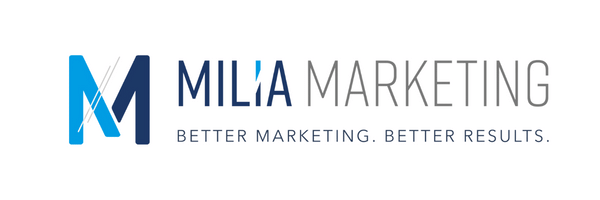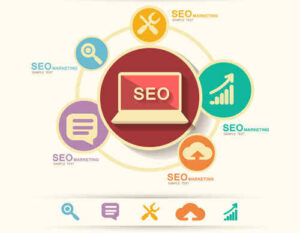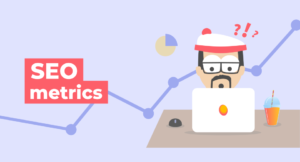So you’re an eCommerce business owner or salesperson, and you want to increase your online visibility and sales, but you’re not sure which strategy to choose: SEO vs PPC? Don’t worry, you’re not alone in this dilemma.
Search Engine Optimization (SEO) and Pay-Per-Click (PPC) advertising are two popular techniques used by businesses to drive traffic to their websites.
So, what if you’re on a tight marketing budget or short-staffed? Which of these options should you focus most OR all your resources on? Let’s find out!

Understanding SEO (Search Engine Optimization)
SEO is a must for every business that operates a website. It is all about getting your website to rank higher on search engines like Google almost for free. As for eCommerce SEO, you can never really go wrong because the efforts you take now will yield excellent results in the future.
SEO is the practice of improving your website so that it appears in organic search results. Organic search results are the results that appear without the words “paid ad” next to them. They’re ranked one to ten per search engine results page (SERP).
SEO is like a conversation, where relevant and valuable content engages both users and search engines. The longer you hold that conversation, the more attention you get.
There are different types of SEO, and that’s where it gets slightly complicated. Most business owners think SEO is simply doing keyword research and writing content. There’s more to it.
The four basic types of SEO play a huge role in ensuring your e-commerce business gets the visibility and revenue growth it deserves. They include:
- On-page SEO
- Off-page SEO
- Technical SEO
- Local SEO
You can find out more about these four basic types of SEO in our comprehensive article detailing all you need to know.
Benefits and drawbacks of SEO for e-commerce
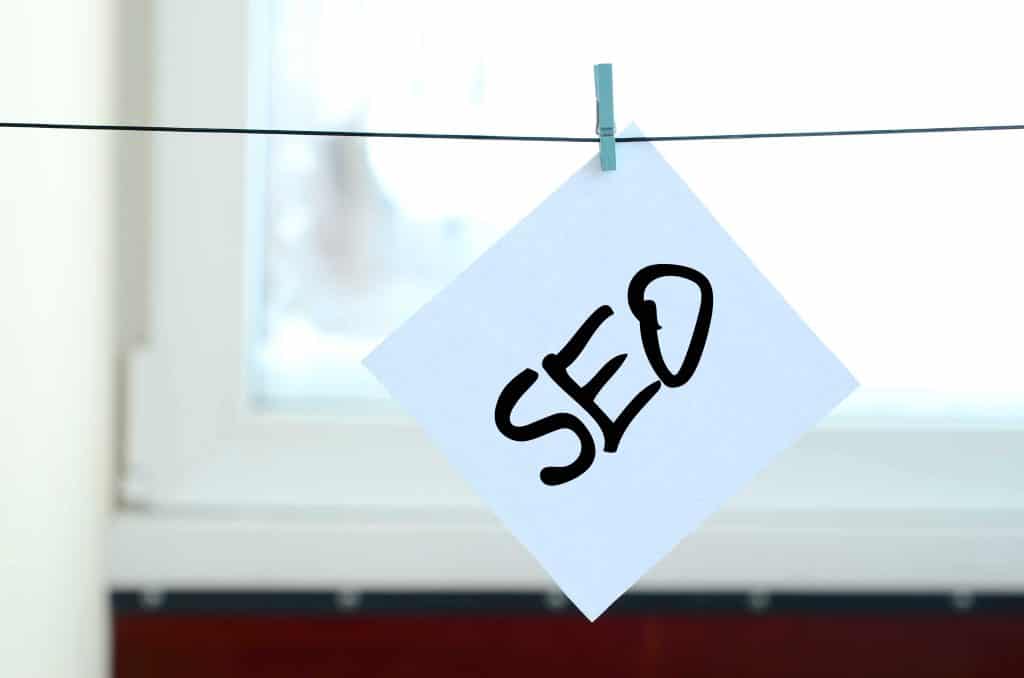
If you’re choosing SEO as part of your digital marketing strategy to boost revenue, here are some pros and cons to consider.
Benefits of choosing SEO
- Cost-effectiveness: Unlike PPC, where you have to pay for every click your page gets, SEO is cost-effective. SEO may cost you some time and resources. However, once your website gains traction, everything else is almost as good as free. In short, SEO is free.
- Long-term results: SEO is a long-term strategy, where once you establish a strong presence in search engine results through organic rankings, you can continue to attract organic traffic without additional costs.
- Increased organic traffic: SEO is the way to go if you want more free visitors to visit your site. As your website ranks higher for keywords your potential customers are searching, more visitors will enter your site organically (non-paid).
- Brand credibility and trust: SEO can provide your business with more trustworthiness from existing and potential customers. As your website ranks on top of SERPS for queries your users are searching for, you’ll be perceived as trustworthy and credible.
- Competitive advantage: Most of the biggest eCommerce brands are using SEO strategies for eCommerce. Once adopted, you can compete for traffic and gain more prospects.
Drawbacks of SEO
- TIme-consuming: SEO is for business owners who are willing to play the long game. SEO can take months and ever years to yield results. If you’re looking for speedy but temporary results, PPC might be the solution for you.
- Limited insights on user behavior: While SEO is research-intensive, there’s limited information to confirm that users will respond a certain way to your strategy.
- No control over search engines and algorithms: All the different search engines have their SEO best practices on how to get on top of the page. Their algorithms can also be updated and changed with time.
- High competition: You must understand that other eCommerce brands are aiming for that same spot as you. This makes it competitive and, sometimes, difficult to achieve without the help of an expert.
Enough talking about SEO. Let’s take a look at what PPC entails.
Exploring PPC For eCommerce

PPC, also known as Pay-Per-Click, is a paid advertising strategy where you bid for ad placement on search engine results pages. So, if you want your website to show up at the very top of the results, you must pay for it!
PPC allows you to target specific keywords and demographics, and you only pay when someone clicks on your ad. It’s a great way to drive traffic to your website landing page instantly.
While SEO focuses on improving organic search engine rankings, PPC involves paying for advertisements that appear when users search for specific keywords.
Like SEO, there are different types of PPC ads, and they include the following:
- Search ads
- Display ads
- Shopping ads
- Video ads
- Social media ads
- Gmail sponsored promotions, etc.
Turn your e-commerce store into a sales magnet using these 6 Tips to Attract Customers to Online Store in 2023
Benefits and Drawbacks of PPC for eCommerce
The advantages and disadvantages of PPC can be considered direct opposites of SEO pros and cons. Here’s a look into them.
PPC Pros
- Immediate and measurable results: PPC marketing offers real-time analytics to help you see what works, what is wrong with your PPC strategy, and areas of improvement.
- Targeted advertising: PPC is a great way to target the right users based on their demographics and interests. It provides more grounded data than SEO.
- Increased website traffic: A successful PPC campaign can help you boost website traffic and leads.
- Speed: Compared to SEO, PPC is a much faster and more direct approach to reaching your audience.
- Pay only for clicks: Unlike traditional advertising, where you pay for impressions (views), PPC charges you only when someone clicks on your ad. This “pay-per-click” model means you’re paying for actual engagement and potential leads, making it a cost-effective strategy.
PPC Cons
- Limited long-term value: PPC ads stop showing once the ad budget runs out. Unlike organic SEO results, which can provide sustained visibility, PPC offers limited long-term value.
- Ad blockers and blindness: Some users install ad blockers to avoid seeing ads altogether. This can reduce the reach and effectiveness of PPC ads. Most users also now recognize paid search ads and just ignore them altogether.
- Cost-intensive: To maintain the results you get from your short PPC ad campaign, you must continue to run the ads. This can also lead to ad fatigue, where the user gets tired of seeing the same ad over and over.
- Ad fraud: Since you pay for every click you get, some competitors may use bots to click on your ad and exhaust your budget repeatedly. This eliminates your chances of generating genuine leads.
PPC and SEO have so much in common. Both practices help you gain traction and increase the influx of users to your website. At the end of the day, the best choice for you depends on your business goals.
If you run a Shopify store, we encourage you to read this insightful blog post on 9 Key Elements To Grow Shopify Store in 2023 (and Beyond). Save it for later, too.
The Difference Between SEO and PPC
The table below should give you a clear understanding of how SEO and PPC work.
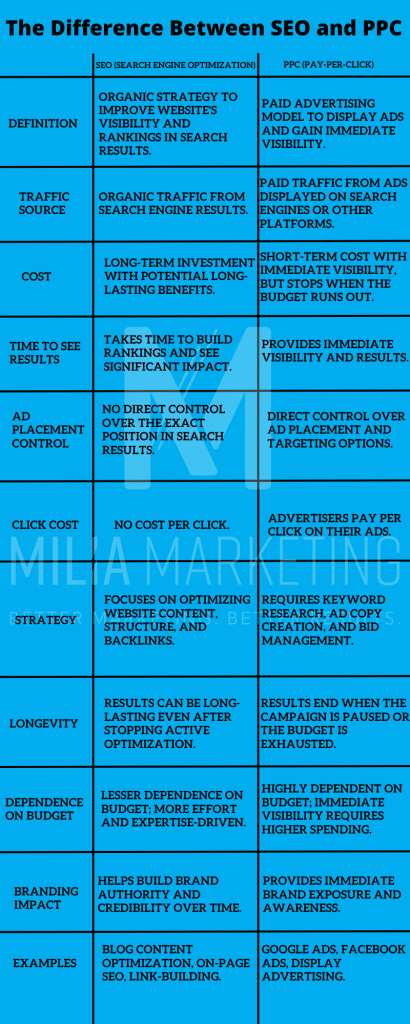
See how you can 10x Your B2C Sales Using These 11 eCommerce Best Practices.
Strategies for Combining SEO and PPC for eCommerce

Who says you have to choose between SEO and PPC? Most eCommerce stores use SEO and PPC together, and the results are excellent.
Imagine having quality SEO that puts you on top of search results and a PPC approach that allows you to occasionally boost product offerings. The best part is that a combination of both practices will result in one complimenting the other. Here’s how you to can do it.
A. Leveraging keyword data from PPC campaigns for SEO optimization
Remember that earlier in the article, you read that PPC provides more targeting data than SEO. Now, with the data you gather from your PPC research, you can discover which keywords your users respond to the most. This will help you optimize your content and meta data to fit.
B. Using PPC ads to test and refine SEO strategies
Use A/B testing for your PPC ad copy and landing pages to identify which messages and CTAs resonate most with your audience. Apply the insights to optimize your SEO campaigns for better conversion rates.
C. Remarketing for SEO Traffic
Implement remarketing campaigns for users who visited your website through organic search but didn’t convert. Show them relevant PPC ads to bring them back to complete their purchase or engage with your site.
D. Seasonal Campaigns
During seasonal peaks or promotions, consider running PPC campaigns alongside your SEO efforts to dominate the search results. Utilize PPC to gain immediate visibility while SEO works in the background for long-term benefits.
E. Content Alignment
Ensure that the content used in your PPC ads aligns with the landing pages and SEO content on your website. Consistency in messaging and offers enhances user experience and increases the likelihood of conversions.
Check out 15 eCommerce Website Development Strategies for Success.
Conclusion: SEO vs. PPC for eCommerce
In conclusion, both SEO and PPC play crucial roles in driving success for eCommerce marketing. SEO offers a sustainable, long-term strategy to improve organic visibility and attract relevant, high-quality traffic. It establishes brand authority and credibility over time, leading to lasting benefits.
PPC, however, provides immediate visibility, allowing businesses to target specific audiences and generate quick results through paid advertising.
Combining these two powerful strategies can create a harmonious marketing approach, where SEO builds a strong foundation for long-term growth, while PPC offers immediate visibility and targeted campaigns for short-term goals.
Comparing SEO or PPC should only come when you don’t have the resources to carry out both strategies. If you’re looking for help with PPC or SEO services, send us a message today and our experts with consolidate both strategies to assure you of maximum results.





